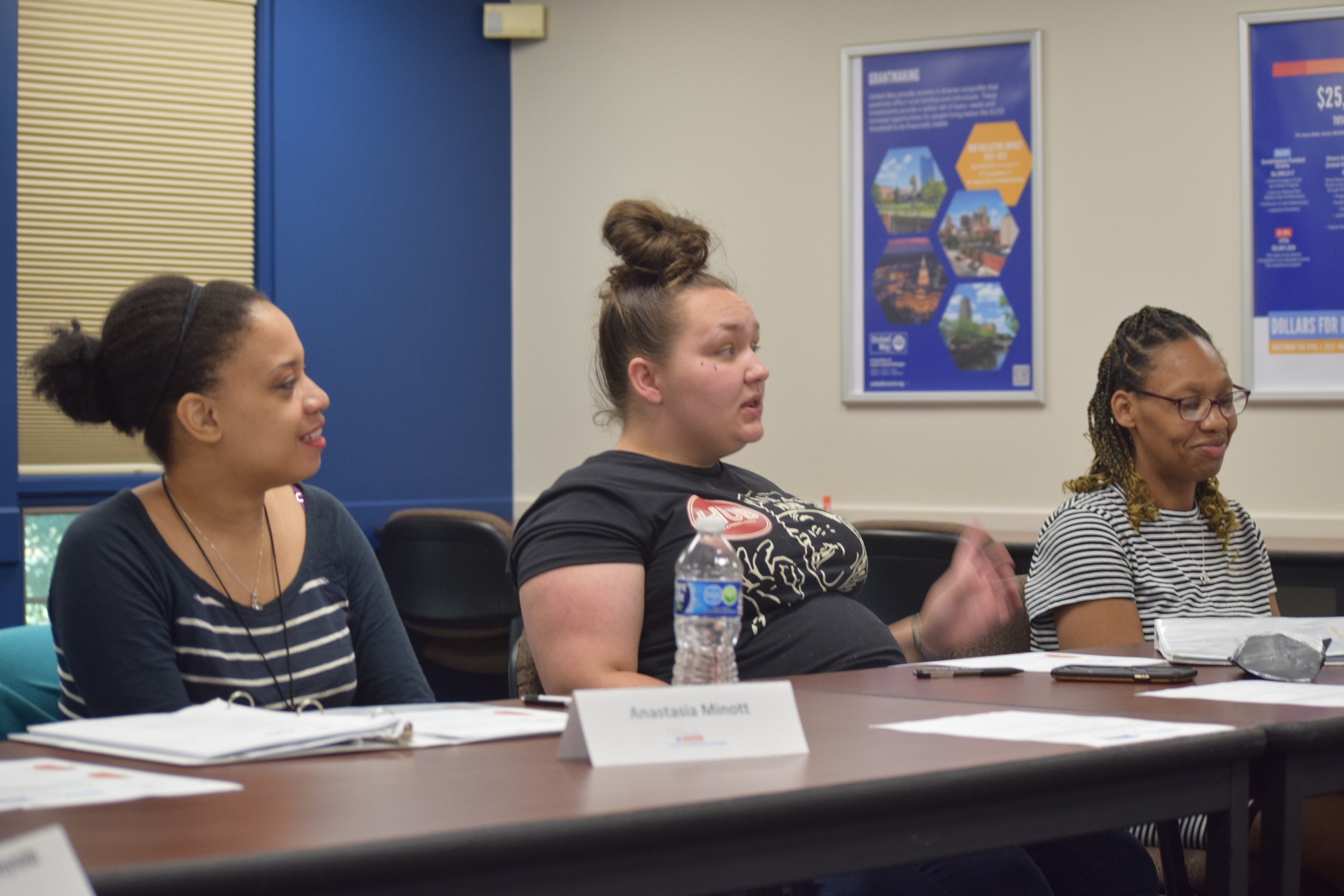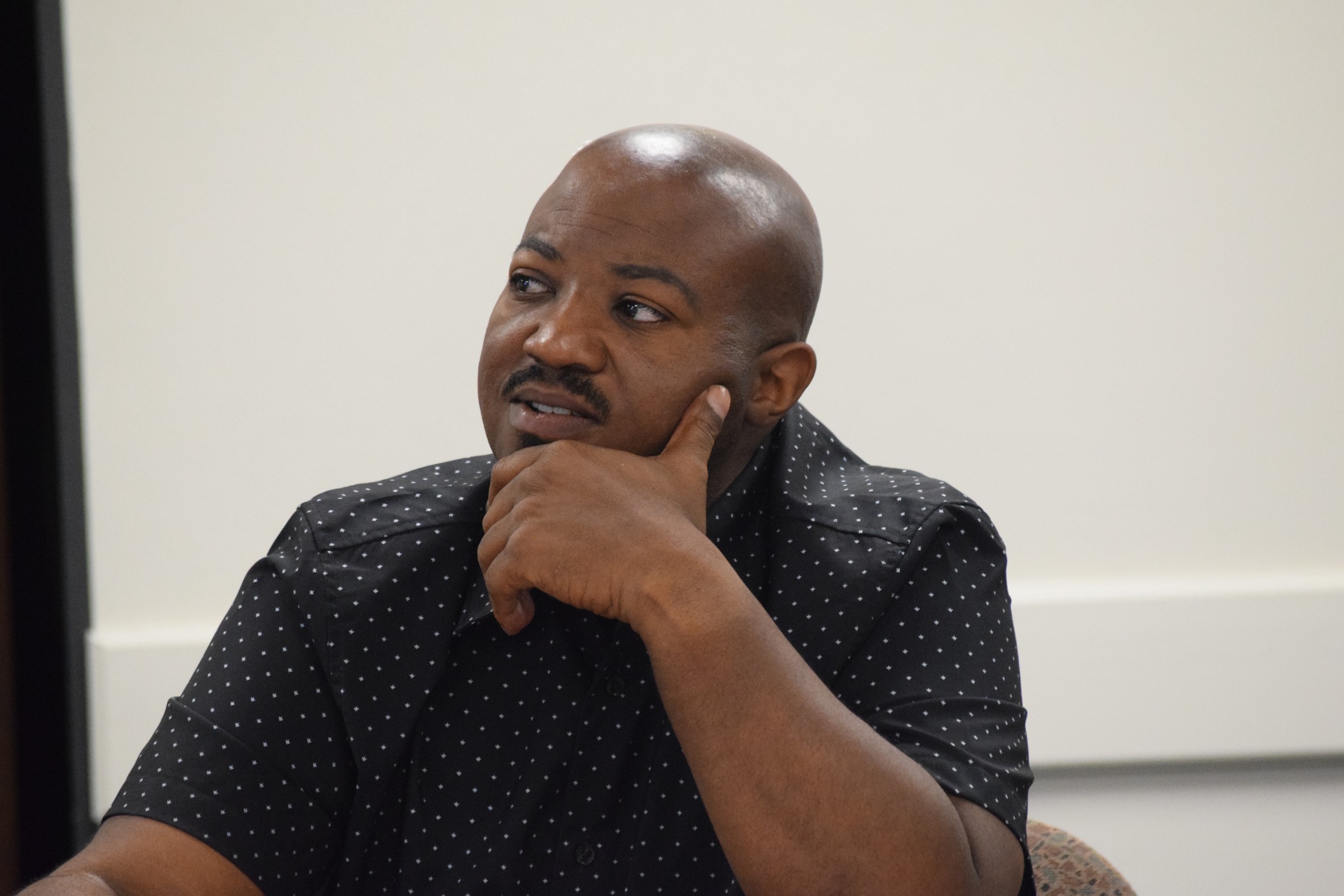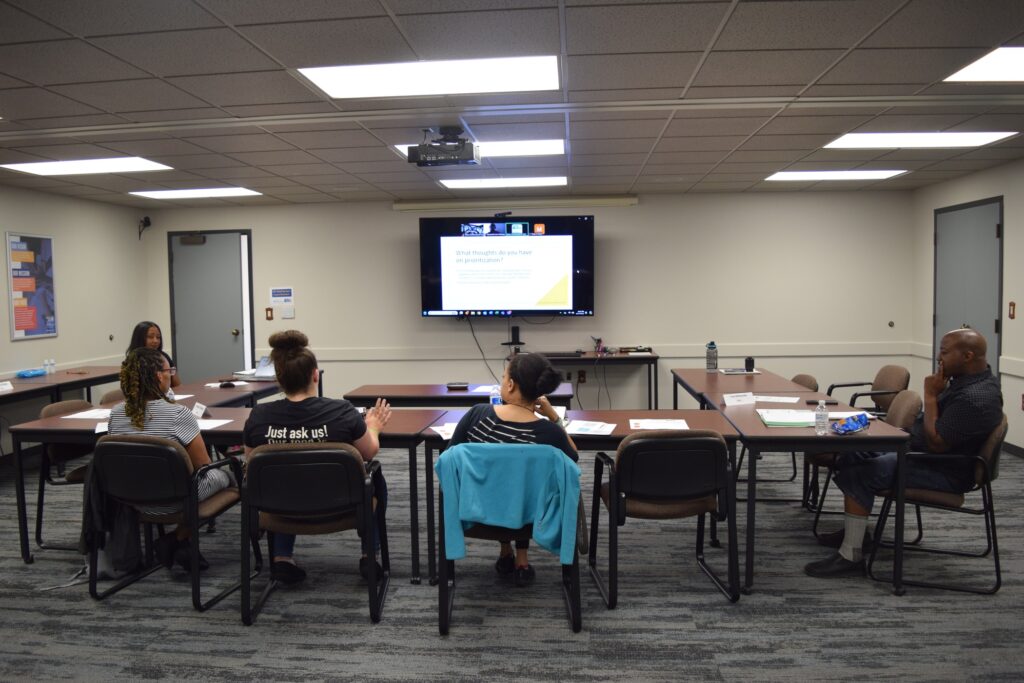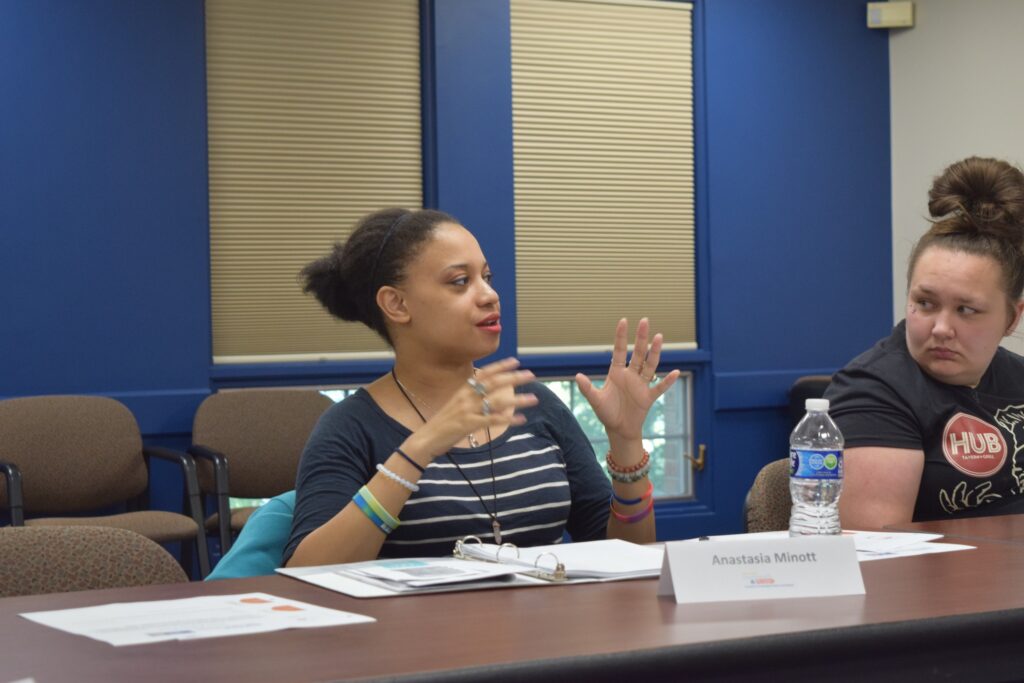
KALAMAZOO – In a recent Second Wave Media article, “Confronting racism’s impact on affordable housing access in Kalamazoo,” the Kalamazoo County Continuum of Care (CoC) program was highlighted for its role in addressing homelessness, as well as its efforts to gain critical engagement and feedback from members of the community who have experience in being unhoused.
A program of United Way of South Central Michigan, the CoC recently hired eight community members as consultants to come alongside staff and advise on the work of addressing gaps and challenges in the system, creating plans to end homelessness, and managing funding.
“It is important to have those who are closest to the problem be closer to the solution,” CoC Director Patrese Griffin told Second Wave.
The group meets monthly, and at one recent meeting, they discussed topics such as the latest funding cycles and coordinated entry, the method by which individuals access resources.
“As someone who experienced homelessness for three years and saw other people experience homelessness during Covid and other crucial times, helping anyone in need is like the best thing,” said Anastasia Minott, one of the new consultants. “I love how we get to discuss different topics to address the homeless crisis, and hopefully will see an outcome to it, too.”
From Second Wave:
Patrese Griffin has been a longtime community advocate for fair housing in the Kalamazoo area and in 2022 she was named director of the Kalamazoo County Continuum of Care (CoC), which works to address homelessness.
Before that, Griffin served on the Kalamazoo City Commission as vice mayor from 2019 to 2021 where she worked to pass legislation, Chapter 18 and 18A of the city’s fair housing ordinance, which expanded fair housing protections by eliminating discriminatory housing practices that deny people housing based on prior criminal convictions or evictions.
For Griffin, the topic of racism in affordable housing is a deeply personal one. She’s long been a vocal advocate for more affordable housing access after she and her family experienced a period of homelessness when a house that they had been renting was unexpectedly condemned. Griffin believes that her husband’s prior criminal arrest record, compounded by prejudice and systemic racism led to their difficulty in securing housing for their family.
“In the United States, we have a problem with mass incarceration. And so disproportionately, families and individuals of color are penalized through our judicial system,” says Griffin.
“There isn’t any sort of research that shows that those who have committed crimes or have gone to jail don’t pay their rent. There’s no connection there,” she adds.
The Continuum of Care, where Griffin is now the director, helps the local unhoused population by coordinating services and funding in the community. In Kalamazoo County, the CoC is overseen by the United Way of South Central Michigan (UWSCMI) and works with local partners to address gaps and challenges in the system, create plans to end homelessness, and manage funding.
In pursuit of that idea, the Continuum of Care recently hired its first-ever batch of community consultants to advise the organization.
“It is important to have those who are closest to the problem be closer to the solution,” says Griffin.
And the best way to do that, she believes, is to meaningfully compensate community members who have experienced homelessness firsthand for their work and engagement within the organization and the larger advocacy space.
After a recent interview process, the Continuum hired eight individuals to help lead and guide certain projects within the organization. Consultants are hired for one year and meet on a monthly basis. They will participate in the Continuum’s grant review cycles to help bring some personal experience to the decisions the organization makes about how to allot its resources. These community consultants are individuals who identify Kalamazoo as home, and who have recently lived experience of homelessness within the last five years. They are compensated for every meeting that they attend and the work that they do in helping the organization decide how to allot its resources.
Hiring people as consultants is not only helpful to the organization which can use the lived experience of consultants to better tailor their response to the needs of individuals experiencing homelessness, but it also gives them something to add to their resume, helping to convert their lived experience into job experience.
Although Griffin admits that the untested pilot program sometimes feels like “we’re flying the plane, and building the plane, all at the same time” she is hopeful that by empowering community members to work alongside an established organization to make decisions in a meaningful way will help to set them up in the future with other opportunities.
“I’m just excited to see where this journey takes us,” she says.
Read the full Second Wave article.
Learn more about the Continuum of Care in Kalamazoo and Calhoun counties.



